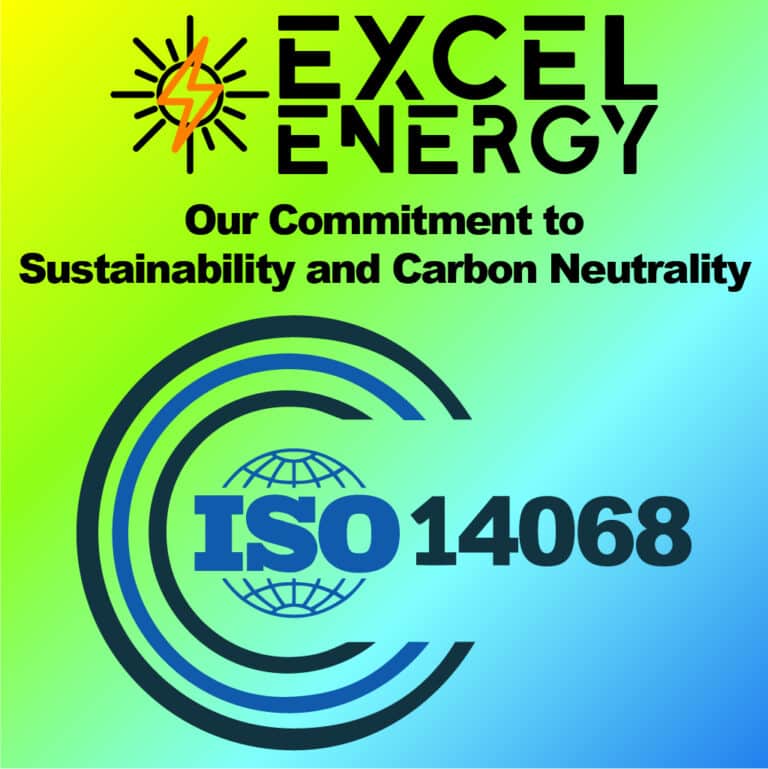Carbon Neutral Business: What Does ISO 14068-1 Certification Mean for Businesses Pursuing Carbon Neutrality?
ISO 14068-1:2023 is an international standard that offers a verified framework for measuring, reducing, and offsetting greenhouse gas emissions.
It helps organisations create a clear, evidence-based approach to making credible and transparent claims about carbon neutrality.
In the UK, businesses face increasing pressure from investors, clients, and regulators to show real, measurable carbon reductions, not just good intentions.
Achieving true carbon neutrality requires clear governance, reliable data, and independent verification to demonstrate progress and maintain stakeholder trust.
Reaching carbon neutrality involves more than just installing renewable technologies or buying offsets. It requires long-term decarbonisation planning, setting achievable targets, and committing to ongoing operational improvement.
ISO 14068-1 lays the groundwork for businesses to develop practical, measurable strategies that promote industrial decarbonisation and significant progress toward a lower-carbon future.

Why ISO 14068-1 Matters for UK Businesses
Businesses in sectors like manufacturing, logistics, construction, and healthcare are being judged on how well they reduce emissions and move to sustainable energy systems.
The ISO 14068-1 standard makes sure that any claim of carbon neutrality is credible, traceable, and verifiable.
For managers in sustainability, operations, and finance, this standard serves as an assurance tool. It makes sure the organisation’s environmental actions match scientific targets, giving measurable value to ESG reporting and procurement needs.
ISO 14068-1 vs PAS 2060: What’s the Difference?
Aspect | ISO 14068-1:2023 | PAS 2060 |
Status | Internationally recognised ISO standard | UK specification developed by BSI |
Scope | Broader, science-based, globally aligned | National, less detailed |
Focus | Long-term carbon neutrality and continuous reduction | Verification of a carbon-neutral claim |
Verification | Requires independent confirmation | Independent or self-declaration possible |
Replacement | Supersedes PAS 2060 from December 2023 | Being phased out |
ISO 14068-1 builds on PAS 2060 but introduces a more detailed and globally consistent approach.
It strengthens governance, transparency, and accountability, making it the preferred route for businesses serious about industrial decarbonisation.

How ISO 14068-1 Defines Carbon Neutrality
The standard defines carbon neutrality as a condition in which greenhouse gas emissions associated with a defined subject such as an organisation, product, or service are balanced by verified removals or offsetting within a specified timeframe.
Key Business Takeaways




For businesses investing in commercial solar power systems, this alignment ensures renewable energy investments genuinely contribute to a credible carbon neutral business strategy.
How ISO 14068-1 Relates to Other ISO Standards
Excel Energy’s achievement of ISO 14068-1 complements its existing certifications:




Together, these create a unified framework for operational excellence, environmental stewardship, and workplace safety.
Standard | Focus Area | Business Value |
ISO 9001 | Quality management systems | Consistent project delivery |
ISO 14001 | Environmental management | Reduced operational impact |
ISO 45001 | Health and safety management | Safer workplaces |
ISO 14068-1 | Carbon neutrality framework | Verified decarbonisation progress |
This integrated certification framework reinforces Excel Energy’s ability to deliver industrial decarbonisation strategies that meet both compliance and sustainability goals.
What Types of Offsets Are Acceptable Under ISO 14068-1?
Offsets may be used to balance residual emissions, but only if they meet strict conditions:




This rigorous approach ensures that decarbonisation strategies rely primarily on reduction and removal, keeping offsets as a last resort.
How ISO 14068-1 Helps Prevent Greenwashing
The standard minimises the risk of misleading environmental claims by:




This transparency gives stakeholders confidence that carbon neutral business claims are evidence-based and verifiable.
FAQ: ISO 14068-1 and Carbon Neutrality
- What is the purpose of ISO 14068-1?
It provides a global framework for achieving and verifying carbon neutrality through emission measurement, reduction, and responsible offsetting.
- How does it differ from PAS 2060?
ISO 14068-1 replaces PAS 2060 with a more detailed, internationally recognised standard that emphasises reduction and verification.
- Who can apply ISO 14068-1?
Any organisation, public or private, large or small can apply the standard to its operations, products, or services.
- Does it require third-party verification?
Yes. Independent verification is central to ensuring the credibility of a carbon neutrality claim.
- How does it support decarbonisation strategies?
It integrates with broader sustainability systems such as ISO 14001 and ISO 14064, ensuring your decarbonisation planning aligns with recognised best practice.
- Can businesses still use offsets?
Yes, but only for residual emissions after reduction and removal activities have been prioritised and verified.
- Why is it important for solar and renewable energy providers?
It confirms that renewable energy solutions like commercial solar PV directly support measurable, certified carbon reduction and industrial decarbonisation.
Summary and Next Steps
ISO 14068-1 gives UK businesses a verified framework to achieve carbon neutrality through measurable carbon reduction, removal, and responsible offsetting.
By integrating renewable energy and energy management into your industrial decarbonisation strategy, you can strengthen ESG performance, improve sustainability, and provide credible results for stakeholders.
Partnering with Excel Energy ensures solar PV and other renewable solutions directly support your decarbonisation planning and carbon reduction goals.
Take Action Today
Work with Excel Energy to implement ISO 14068-1 certified strategies that drive verified carbon neutrality and lasting environmental impact.
